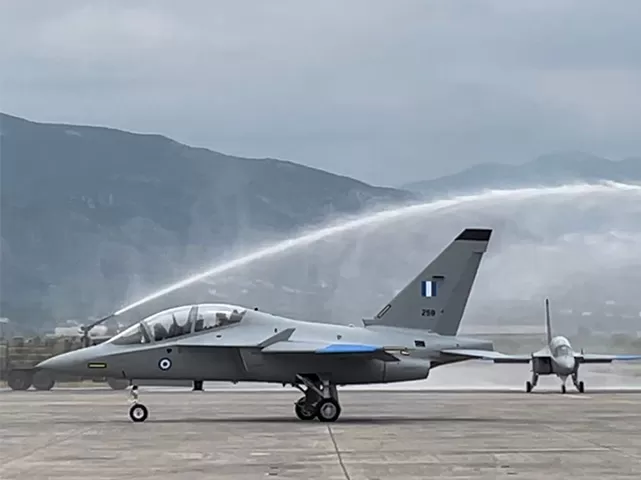
Soaring High Over Kalamata
The story of Elbit Systems' remarkable journey in establishing a world-class flight school on Greek soil.
In the vast expanse of global enterprises, few can claim to have established a fully operational flight school on foreign soil and seen it flourish within mere months. This remarkable achievement belongs to Elbit Systems' Flight Academies & Services Business Unit as they set forth to inaugurate an all-new Greek flight school.
In the Breathtaking surroundings of Kalamata, Greece, a modern Hellenic Air-Force airbase has sprung to life with a staggering budget of over 1.5 billion USD. Entrusted with the crucial responsibility of managing its complex technical operations and refining the training infrastructure was Elbit Systems, the chosen prime contractor."
Shai, the sharp-minded Business Development Director of Flight Academies & Services at Elbit Systems' Aerospace Division, highlights the depth of their expertise and tech savvy. "Our outstanding tech knowledge and capabilities are truly unique," he says.
Building Airbases, Forging Legacies
This isn't Elbit Systems' first rodeo with large-scale government partnerships. "Our reputation reaches far and wide. Many leading nations know us for our knack in taking their military gear and know-how to new heights," says Shai.
Elbit's agreement with the Greek government promises detailed oversight and training at the newly established Kalamata base for over two decades. Elbit's extensive infrastructure includes a wide array of components: from aircraft logistic support to flight simulator technology.
Shai dives into the complexities behind smooth flight operations, a task that's undeniably demanding. "Managing vast logistics warehouses is a challenge, but it's where we excel. It was vital to ensure a sufficient inventory of diverse spare parts for various systems at all times," he explains. This unwavering commitment played a significant role in quickly bringing the new airbase to operational status.
Strengthening Israeli-Greek Synergy
While the success of this project is rooted in the shared cultural ties between Israelis and Greeks, Shai emphasizes that the Hellenic army had even deeper reasons for celebration. "Clear communication during the establishment phase was key, but our zealous dedication, realized in an extremely speedy time for this industry, stands out the most," he explains."
The aircraft models used for training at the Kalamata academy are: the Aermacchi M-346 and the Beechcraft T-6A. Shai emphasizes that Israeli Air-Force pilots are in a league of their own when it comes to mentoring, expertly training students to master these aircraft while maintaining their proficiency.
Shai sees a bright future for the Kalamata flight school, imagining it branching out to include even international flight cadets, positioning the IFTC as a high end NATO standard flight hub.
Looking to the future, the division is constantly improving their top-notch solutions. "We're smoothly weaving AI technologies into our logistics management systems," Shai shares. "With this step up, we'll be able to provide even better services to the Greek authorities and any potential clients."
The content of the article does not constitute business or financial information about Elbit Systems Ltd. (the "Company") and is not intended to be a basis for making investment decisions in the Company's securities. In order to obtain business or financial information about the Company, please refer to the reports and filings that the Company regularly publishes on the website of the U.S Securities and Exchange Commission (EDGAR) and on the notification system of the Tel Aviv Stock Exchange (Maya).
The article may contain forward-looking statements such as estimates, forecasts, estimates, plans, etc. that refer to future events that are considered forward-looking information as defined under the securities laws of Israel and the United States. There is no certainty that such information will be realized, in whole or in part, and the actual result may differ from what was presented in the article, among other things due to its dependence on external factors that are not under the control of the Company and that cannot be evaluated in advance. The forward-looking statements are based on the Company's estimates at the time of publication, and the Company has no obligation to update or correct this data.

